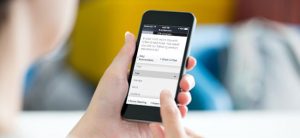
To wind up the first phase of MFour’s Millennial Insights Project, here's Part 3, on Millennials' views on Technology & Lifestyle -- with a focus on the smartphones and other computing devices that are the dominant technology in their lives.
Our study aims to generate insights into this crucial, much-analyzed consumer cohort of more than 75 million Americans, while demonstrating to the market research industry that the fastest, most reliable and effective way to reach Millennials is on the devices that define them -- the smartphones from which, as the results below show, they are in many cases literally inseparable.
The data for this report -- and for the previous segments on Millennials & Entertainment and Millennials & Money and Finance -- was obtained through the first wide-ranging, demographically representative study of Millennials undertaken solely by smartphone app. The fundamental premise is that Millennials are best engaged -- and will have the most comfortable and productive survey-taking experience -- on the mobile devices that fully engage them in all phases of their lives.
Using MFourDIY™, the first all-mobile, do-it-yourself survey platform, we obtained 1,000 validated responses within two hours from Millennials on the million-member active panel that uses the Surveys on the Go® smartphone app. The 30-question survey covered Entertainment, Money & Finance and Technology & Lifestyles, giving a representative picture of the U.S. Millennial population by sex, age, race/ethnicity, income and employment status.
These are key insights on how Millennials use smartphones and other computing devices.
Mobile is Multiple: Smartphone owners haven’t abandoned other computing devices – as long as those other devices meet the portability test. 87.1% also own a laptop, and 71.4% have a tablet.
But Smartphones are Essential: 92.3% of Millennials said they use their phones at least several times a day, compared to 32.1% for laptops. 44.9% said they spend at least five hours a day on their smartphones – compared to 23.3% who spend five or more hours on a personal computer (desktop or laptop). 79.3% of Millennials use their phones at least two hours a day, compared to 45.7% for personal computers.
Only 3.8% of respondents said they use their smartphones less than an hour a day. Millennials are far more likely to make sparing use of laptops and/or desktops - 26.3% report using them less than an hour a day.
A Constant Companion: 45.3% of Millennials say they keep their smartphones with them 24-7. 93.2% say they keep their phones on their persons or nearby at least 10 hours a day.
Minorities are Really Into Their Phones: Majorities of African Americans (57.1%) and Hispanics (51.6%) reported spending five hours or more per day on their phones; Asians (42%) also exceeded Caucasians (38.9%) when it came to epic phone usage.
Desktops are Bottoming Out: Millennials are pushing the granddaddy of personal computers into retirement. Only 45.2% of them own a desktop; men are the diehards, with 50.6% still holding on to desktops, compared to just 39.8% of women. Affluence is another predictor for ownership of what most Millennials apparently perceive as a luxury they can live without. 54.2% of respondents living in households with annual incomes of at least $75,000 said they had a desktop as well as a smartphone. Desktop ownership in Millennial households with earnings under $50,000 was 42%.
Only one-third of Millennials (33.1%) say they use a desktop computer at least once a day. Almost as many (30%) are now using wearable devices such as smart watches at least once a day.
Whole Lotta Checkin’ Goin’ On: 88.7% of Millennials check text messages the moment they get them. They’re considerably less compulsive about social media and app notifications (41.2% and 40.5%, respectively, get checked immediately). Email continues to trend downward -- just 35.3% get opened right away. 51% check their apps' push notifications at least once an hour, compared to 48.6% for email.
OK With Their OS: Overall, Millennials seem satisfied with whatever smartphone operating system they’re using now. Those saying they were likely or very likely to switch (25.6%) were outnumbered two-to-one by those who said they were unlikely or very unlikely to make a change (51.9%). That left 22.5% who could go either way.
However, there were differences in the degree of loyalty commanded by Apple's iOS system and Google's Android. They were comparable when it came to their shares of loyal users -- -- 53.8% of iOS users and 50.4% of Android users said they were likely or very likely not to switch devices. But on the other end, Android users were twice as likely to express discontent: 32.9% said they were likely or very likely to switch to a different OS, compared to 16.7% for iOS.
Can Google poach some of the 29.5% of iOS users who said they were neutral about keeping their current system, while persuading the 16.7% of neutral Android users to stay? Can Apple succeed in prying loose the one-third of Android-using Millennials who apparently are unimpressed with Google's system? Or, with nearly half of Millennials either poised to change operating systems or sitting on the fence, is there an opening for other system designers to compete?
Meet Your Next App: When it comes to discovering new apps to download, Millennials rank advice from family and friends (61%), social media (60.4%) and Apple and Google’s app stores (56.7%) as by far the biggest influences. The advertising about apps that's most likely to influence them is the kind they they receive through an app -- 33..6% of Millennials cited in-app advertising as a factor, compared to 23.4% who said ads on television, radio or in print media helped them discover new apps. News coverage ranked last as a portal to discovering, cited as an influence by 15.1%.
When it came to using social media to discover apps to download, women were notably more active than men -- 67.6% to 53.2%. The same goes for legacy advertising (television, radio and print), cited by 27.4% of women and 19.4% of men. African Americans also stood out in citing legacy advertising channels as a source of information about apps – 37.1% compared to 22.6% of Hispanics and 20.5% of Caucasians.
Just A Few Go A Long Way: About half of Millennials (50.7%) use 4 to 6 different mobile apps per day. At the extremes, just 15.4% use no more than 3 apps daily, and 13.5% use 10 or more. App usage varies little across ethnicities, age segments and gender.
Methodology
Using MFourDIY, the market research industry’s first all-mobile, do-it-yourself platform for designing and carrying out studies, MFour fielded a 30-question survey on Sept. 10 to Millennials who make up about 60% of its million-member active panel, all of whom participate in research via the Surveys on the Go® app for smartphones and tablets. Fielding time was less than two hours for 1,000 validated responses.
Responses reflected U.S. Millennials’ demographic profile: 50% male, 50% female; 56% Caucasian, 19% Hispanic/Latino, 14% African American/Black, 5% Asian, 1% each for Middle Eastern, Pacific Islanders and Native Americans/Alaskans; 3% Other. Age brackets were 18-24 (36%), 25-29 (31%) and 30-36 (33%). The study also segmented respondents by whether they were parents of children under 18, their type of work (full-time blue collar and white collar, part-time, unemployed), and their income (six brackets from $25,000 or less to $100,000 or more).
To read our previous reports, for Part 1, Entertainment, click here.
For Part 2, Money & Finance, click here.
To view all survey data, visit surveysonthego.net/tracker and use these login credentials:
Username: MillennialCaseStudy
Password: MFourMillennials
 You’re always on a quest for the best consumer insights, so doesn't it make sense to engage consumers in the way they’d most like to be engaged?
You’re always on a quest for the best consumer insights, so doesn't it make sense to engage consumers in the way they’d most like to be engaged?



